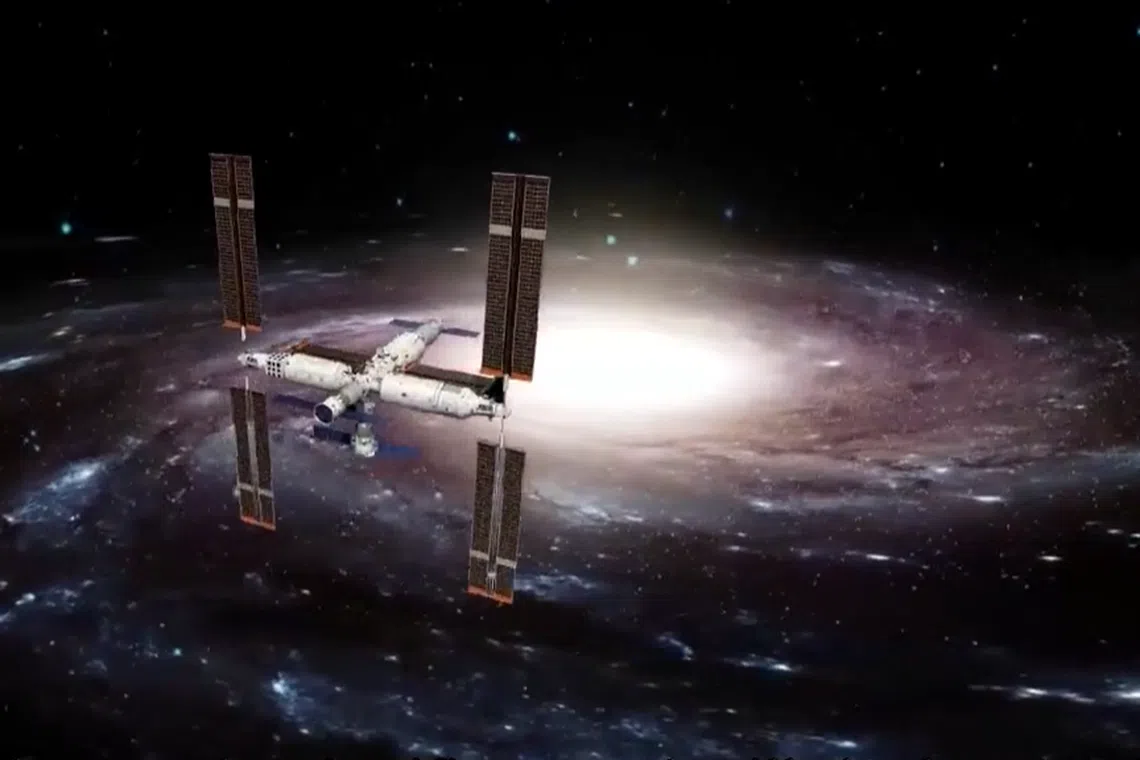China to double size of space station, touts it as alternative to Nasa-led station
Sign up now: Get insights on Asia's fast-moving developments

At 180 metric tons after its expansion to six modules, Tiangong is still just 40 per cent of the mass of the ISS.
SCREENGRAB: CHINA DAILY/ ASIA NEWS NETWORK
BEIJING - China plans to expand its space station to six modules from three in the coming years, offering astronauts from other nations an alternative platform for near-Earth missions, as the Nasa-led International Space Station (ISS) nears the end of its lifespan.
The operational lifetime of the Chinese space station
This would be more than the 10 years previously announced.
China’s self-built space station hosting a maximum of three astronauts
At 180 tonnes after its expansion to six modules, Tiangong is still just 40 per cent of the mass of the ISS, which can hold a crew of seven astronauts.
But the ISS, in orbit for more than two decades, is expected to be decommissioned after 2030, about the same time China has said it expects to become “a major space power”.
In 2022, Chinese state media said that as Tiangong becomes fully operational, China would be no “slouch” as the ISS heads towards retirement, adding that “several countries” have asked to send their astronauts to the Chinese station.
But in a blow to China’s aspirations for space diplomacy, the European Space Agency said this year it did not have the budgetary or “political” green light to participate in Tiangong, shelving a years-long plan for a visit by European astronauts.
“Giving up cooperation with China in the manned space domain is clearly short-sighted, which reveals that the US-led camp confrontation has led to a new space race,” the Global Times, a nationalist Chinese tabloid, wrote at the time.
Tiangong has become an emblem of China’s growing clout and confidence in its space endeavours, and a challenger to the United States in the domain, with Beijing being isolated from the ISS. It is banned by US law from any collaboration, direct or indirect, with Nasa.
Russia, a participant in the ISS, has similar space diplomacy plans, suggesting that Moscow’s partners in the Brics group – Brazil, India, China and South Africa – could construct a module for its space station.
Roscosmos, the Russian space agency, said in 2022 that it was planning to build a space station


